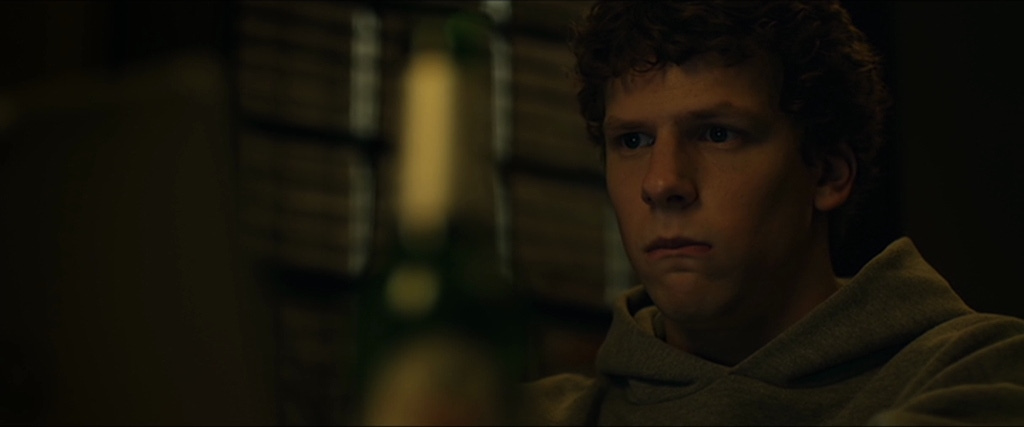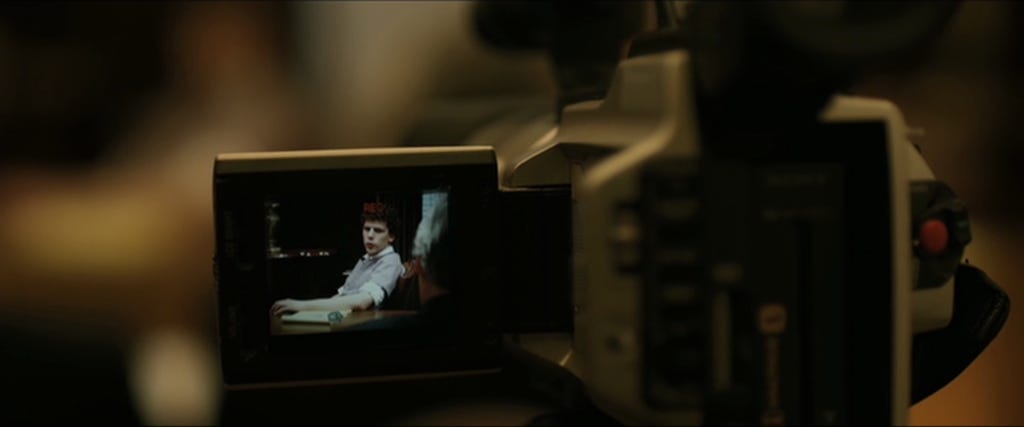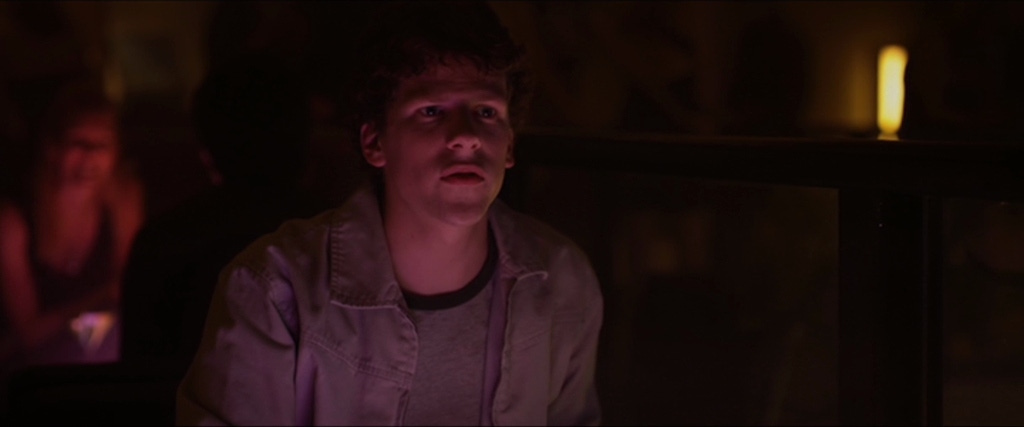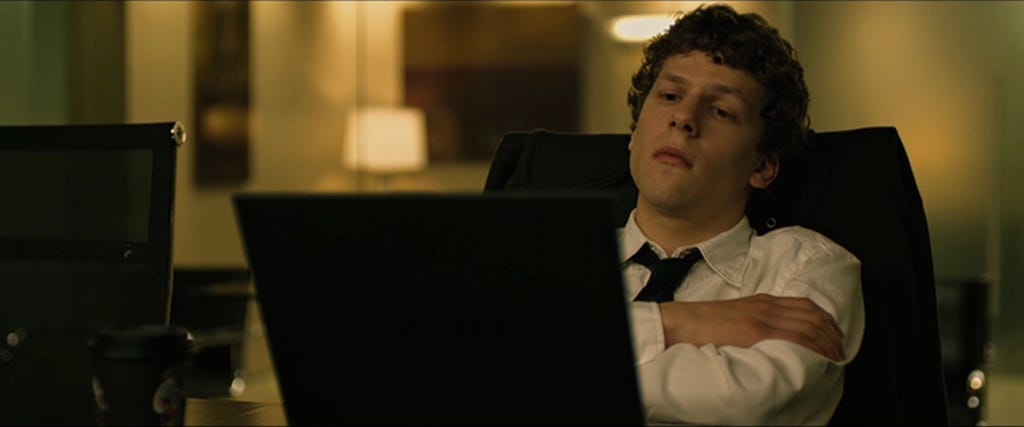Me Man, Me Strong
Mark Zuckerberg recently went on the Joe Rogan podcast and talked about masculinity:
I have three sisters, no brothers. I have three daughters, no sons. I’m surrounded by girls and women my whole life… masculine energy is good and obviously, society has plenty of that but I think corporate culture was really trying to get away from it. And I think all of these types of energy are good, but I think having a culture that celebrates the aggression a bit more has its own merits that are really positive… I think it’s one thing to say we want to be welcoming and make a good environment for everyone and I think it’s another to basically say that ‘masculinity is bad.’
Zuckerberg goes on to connect his newfound love for martial arts to masculinity, describing beating up his “guy friends” as a “positive experience.” He also refers to hunting (rifle, bow & arrow) as a masculine activity and wants to teach his daughters more about it.
While I can generally follow his train of thought, I find these comments off-putting and narrow-minded. Here’s what I gathered:
He’s been surrounded by women his whole life, who presumably have behaved similarly i.e. fitting traditionally feminine archetypes, so he either 1) really understands a particular type of woman or 2) he’s fed up with feminine energy and overcompensating now. Neither is great as the opener to a rant about masculinity.
Wanting to explore more traditionally masculine people or activities, Mark sought out hunting and martial arts. As someone who used to do martial arts, I understand the focus and confidence that it can bring. However, it also seems overly simplistic to identify literally the most combative sports as masculine, implying other activities that don’t involve bloodshed are less masculine, or that other versions of masculine activities don’t exist.
Mark wants to change the corporate culture at Meta. His logic is:
Being welcoming and making a good environment for everyone is feminine, and that is good for a workplace. This is driven by our woke culture that has “neutered” the corporate environment wherein everyone is too easily offended and everyone sues for every tiny transgression. To be clear, that last sentence is mostly sarcastic (and quoting Mark), but I understand the perspective. In my career, I’ve seen numerous lawsuits brought on by employees, a result of an increasingly litigious work culture. This is simply a corporation’s response to minimizing lawsuits.
Being aggressive or combative is masculine, and that is bad for a workplace. This is probably true. See above re: lawsuits.
Meta’s culture is too feminine. This is a highly subjective call that in a robust company, would be gauged and calibrated across numerous data points and professional viewpoints. At Meta, this is probably just Mark’s call.
The two energies above are mutually exclusive. I believe Mark has equated “being welcoming” to femininity and offered the only alternative as aggressive masculinity. If he wants Meta to behave more combatively, he has a right to do so. In response, employees have a right to put up with it or quit.
Zuckerberg is implying that corporate culture is either good femininity or bad masculinity; there is no gradient. That dynamic could be attributed to a lack of examples of good masculinity (whether that’s a Mark Zuckerberg blindspot or a Meta blindspot is probably moot; functionally, Meta is Mark.) So, the most generous reading of Mark’s statements is that cultivating a culture of effective masculinity (or a mixture of both energies!) is extremely difficult, and probably rarely seen in the corporate world, so they just avoid it. The more realistic reading of Mark’s statements is that he carries a lot of implicit bias and has strong opinions about the culture of his company and has never been an eloquent public speaker and doesn’t necessarily have a filter on a podcast and stuck his foot in his mouth again.
Political Winds
Sometime around 2018, Zuckerberg significantly increased the content moderation teams at Meta, largely to quell the 2016 election disinformation fiasco and then to appease the incoming Biden administration. Supposedly, Meta spent upwards of $5 billion on moderation, not an insignificant amount of money!
At one point, Trump threatened that Mark “will spend the rest of his life in prison” for Facebook’s role in “moderating” him out of the 2020 election. But now, with a new Trump administration on the horizon, Zuckerberg has changed his tune, excising Meta’s fact-checking system and significantly curtailing its moderation policies. One can assume he is also saving $5 billion. His rationale:
‘The recent elections also feel like a cultural tipping point towards, once again, prioritizing speech… So we're going to get back to our roots and focus on reducing mistakes, simplifying our policies and restoring free expression on our platforms.’
An optimist would claim that Zuckerberg is just focusing his company on its core competency, which is to allow people to post whatever they want. A cynic would claim that Zuckerberg is a Washington DC whore with no morals who will do whatever he needs to appease the new administration. The optimist would be naive but content; the cynic would be correct and furious. I’m not sure which is worse.
An Analysis in Prose
In An Ugly Truth: Inside Facebook’s Battle for Domination (Frankel, Kang), the authors narrate Facebook’s rise from darling startup to media empire. In retrospect, there are many obvious observations:
The root of the disinformation problem, of course, lay in the technology. Facebook was designed to throw gas on the fire of any speech that invoked an emotion, even if it was hateful speech - its algorithms favored sensationalism.
But there are also more enlightening takeaways about Zuckerberg the person:
Zuckerberg’s affinity for the first Roman emperor, Caesar Augustus, whom he had studied at both Exeter and Harvard, was well known. Up to this point, Zuckerberg’s governance had been analogous to that of the Roman Republic. There was a clear leader, but his power was backed by a Senate of sorts that deliberated over big decisions and policies. What he was outlining now looked more like Rome’s move from a republic to an empire. Zuckerberg was establishing rule by one.
This passage is in relation to the 2016 election hacking and Cambridge Analytica backlash circa 2018. In short, this was how Zuckerberg reacted when Meta needed “a wartime leader.” I have no reason to believe he has since relinquished that power.
In 2020, when Twitter began censoring Trump’s tweets, Zuckerberg was pressured to respond to Trump’s rhetoric:
‘I’m responsible for reacting not just in my personal capacity but as the leader of an institution committed to free expression… I just believe strongly that Facebook shouldn’t be the arbiter of the truth of everything that people say online.’1
During the company’s subsequent PR turmoil, Chris Hughes, an original co-founder of Facebook, criticized Facebook:
Mark’s influence is staggering, far beyond that of anyone else in the private sector or in government… Mark alone can decide how to configure Facebook’s algorithms to determine what people see in their News Feeds, what privacy settings they can use and even which messages get delivered… I’m angry that [Mark’s] focus on growth led him to sacrifice security and civility for clicks… And I’m worried that Mark has surrounded himself with a team that reinforces his beliefs instead of challenging them.
Hughes further laments the lack of government oversight to combat Mark's ambitions:
From our earliest days, Mark used the word “domination” to describe our ambitions, with no hint of irony or humility… I don’t blame Mark for his quest for domination. He has demonstrated nothing more nefarious than the virtuous hustle of a talented entrepreneur. Yet he has created a leviathan that crowds out entrepreneurship and restricts consumer choice. It’s on our government to ensure that we never lose the magic of the invisible hand. How did we allow this to happen?
But no one has ever controlled Mark. The book details Sheryl Sandberg’s extensive involvement in Facebook, along with many other executives, who are all placed within Zuckerberg’s orbit less so as peers and more as parental figures, chauffeurs to supervise and cajole and train Zuckerberg. The general implication is that throughout the company’s journey, many Facebook stakeholders - its board, executives, co-founders - exhibited a lingering distrust of Mark Zuckerberg. Was he the right person to lead the company? Was he mature enough? How would he comport himself in lawsuits or Congressional hearings?
Surely, these are the same questions any young CEO would face. But Zuckerberg’s continued refusal to learn or change (or conform?) ruffled feathers. Zuckerberg has never answered to a boss in his life (his reason for declining Yahoo’s bid to buy Facebook at $1 billion wasn’t because the price was too low, but because he didn’t want to work for Yahoo’s CEO), and given his staggering wealth and total control over the company, I’m pretty sure he never will. Indeed, Zuckerberg’s management style may be best summarized in a 2019 interview:
‘For a long time, I had a lot of advisers… who told me when I go out and communicate, I should focus on not offending anyone… part of growing up for me has just been realizing that it is more important to be understood than it is to be liked.’
This is the Zuckerberg complex - raised in elite private school bubbles, overcompensating for feminine energy, never answering to authority, displaying loose morals, and fueled by an unquenchable desire to dominate. What could possibly go wrong?
An Interpretation in Film
Most of us will never have a movie made of our lives; even fewer of us will have a movie made of our lives while we’re still alive. That is not an insignificant detail.
In 2010, David Fincher immortalized Zuckerberg in The Social Network, possibly the best movie of the century (this is not hyperbole). Since I’ll take any excuse to talk about this movie, let me explain my love for it:
Fifteen years later, its technical prowess is still unmatched. The movie contains more FX shots than most summer blockbusters, though you’d never notice because it’s executed so fucking well. The lighting. The framing. The depth of field. Every frame is indeed a painting:
Aaron Sorkin’s script flows beautifully across time and space, ricocheting between innocent college freshmen, weary courtroom combatants, Boston, Silicon Valley, and all the years in between filled with successes, stumbles, and betrayals.
Its conception of Mark Zuckerberg (the character) is the stuff of classic storytelling, positioning him simultaneously as the hero we admire and the anti-hero we disdain. There are no mustache-twirling megalomaniacs here, just teenagers who have lived a bit and lost a bit, warts and all.
Its score. Just listen to it.
My point is that even fifteen years ago, Hollywood recognized a captivating story in Zuckerberg. Though some details were fictionalized, the movie portrayed him as inherently affable, if a bit naive.2 He’s not an asshole; he’s just trying so hard to be.
If anything, the movie doesn’t take the Zuckerberg story far enough. One could easily imagine Hollywood making a sequel, crafting a story around the Cambridge Analytica scandal, or the 2016 election failures, or the Congressional hearings and calls for increased regulations. But that story would necessarily depict an older Zuckerberg, one who’s learned to rule with an iron fist, one who can now circumvent the laws, one who’s amassed total control and shunted everyone else in his circle. In short, that Zuckerberg would be an unstoppable being seeking global domination. A villain. That would be sensationalism.
Masculinity
For the last few years, I’ve unconsciously read more about sociology generally, and men specifically.3 Data suggests that men are becoming more isolated, more depressed, less educated, less wealthy and seemingly, no one is doing anything to help. There are further studies showing isolated men function worse (academically, professionally, socially) than women in the same scenarios and so, actually need more support.
The concept of me man, me strong is a societal construct that doesn’t apply to all men (shocker), yet we expect men to not ask for help because that would show weakness. The branding of toxic masculinity (which to be clear, is very real in many instances) has been used to apply universal blame to an entire gender, prohibiting even the possibility of a healthy masculinity. Perhaps we could all be more resilient if we observed stronger male role models than Zuckerberg, Musk, and Trump?
The reason Zuckerberg’s view on masculinity irked me is because his interpretation is so clearly reductive and restricted. He has equated masculinity with bloodshed (martial arts, hunting), which is definitionally a zero sum game. In his mind, there is no other version of masculinity; it’s execute or be executed. In the corporate world, this mindset makes Zuckerberg a clear winner - someone who beats his opponents - but it doesn’t make him an effective leader - someone who inspires people to work together. There is a big difference.4
Let me propose a new flavor of masculinity. One of my favorite hobbies is woodworking, which I would define as a masculine activity. It requires a certain amount of physical strength (moving large pieces of wood), a technical knowledge of machinery (to use them safely), a willingness to get dirty (don’t inhale that dust), a functional application of physics (the amount of stress one joint can take), a high degree of precision (is there a gap or is it flush?), and a flare for the creative (does it look good?). Despite my definition, I believe anyone can be a great woodworker and in fact, many women are much better at it than men.
The activity doesn’t create the energy, the intent creates it. Woodworking is about bringing together disparate pieces - sometimes old, worn, forgotten - and transforming them into something new, a whole greater than the sum of its parts. Woodworking is intended to create, to express, to build. Zuckerberg’s interpretation of masculinity is limited to destruction, to combat, to competition. He can’t fathom that masculinity can be constructive, that it can provide. It can serve. For such a wealthy man, he really does seem quite poor.
Virtue signaling,
A
This deferral of any responsibility over the content posted on its platform has been Facebook’s standard response regarding anything to do with censorship, defamation, or free speech, all cloaked under the protection of Section 230.
Supposedly, the biggest deviation was Erica Albright’s fictional character. The real Zuckerberg dated the same girl through college, while the movie positioned Erica Albright as a lasting reminder of his lost innocence. Humanizing!
Some specific authors I’ve enjoyed: Jonathan Haidt, Scott Galloway, Liz Plank, Richard Reeves, Bell Hooks
This is the point where I recall my past interviews at both Tesla and Facebook, neither of which I enjoyed. More importantly, I recall the all too common sense of stress and exhaustion in my interviewers’ responses, something that inherently repelled me from those companies’ cultures.











